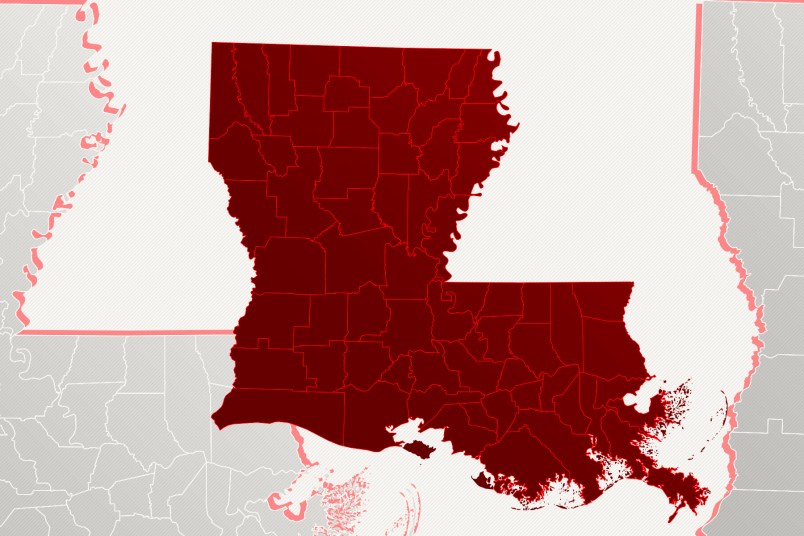Lawyers for the individual voters and organizations challenging Louisiana’s congressional map tried to impress upon a skeptical 5th Circuit Court of Appeals panel Friday that the state’s actions all drive in one direction: delaying the process so long that it has to use the likely unconstitutional map in 2024.
A new remedial map, critically, would include a second Black majority or Black opportunity district, which would almost certainly elect an additional Democratic congressperson.
“Our concern is that they have used that as a delay tactic to push us towards the point where it may be too late to impose a new map,” the NAACP’s Stuart Naifeh told the panel in response to a question about letting the legislature try to draw a remedial map.
The case is one of a handful whose fate was tied to a major Supreme Court decision in which the justices knocked down an Alabama gerrymander this summer.
When the Louisiana case started moving again after that decision, the district court that had blocked the state’s map as another likely Voting Rights Act violation called for a hearing to start crafting a remedial replacement map, should the preliminary injunction stand. In a last ditch effort to delay redrawing, Louisiana officials asked a different 5th Circuit panel to cancel that hearing — and in an extraordinary turn of events, the panel complied.
Friday’s hearing was centered on the state’s attempt to overturn the preliminary injunction.
Throughout, lawyers for the map’s challengers tried to impress upon the panel that the Louisiana officials have an ulterior motive, that their desire to unblock the likely unconstitutional map and put on a full evidentiary hearing in late winter is part of an attempt to stall redrawing. If they can slow-walk the procedure enough, they might get close enough to the election to argue that there isn’t time to draw up a new map.
The lawyers harped on the state’s refusal to name a date by which the secretary of state needed a new map in place to run the election so much that the state officials’ lawyers were forced to produce one.
They often pointed to a case proceeding concurrently in Alabama, the same one that got up to the Supreme Court. There, state officials tried similar delay tactics, refusing to craft a remedial map and instead firing off time-consuming appeals. On Thursday, a panel of federal district judges ordered Alabama officials to use a special master’s map.
While it should have been a helpful example for the plaintiffs, the two conservative 5th Circuit judges on the Louisiana panel were not convinced (the third, a Jimmy Carter appointee, beamed in via Zoom and didn’t speak during the proceedings).
Judge Leslie Southwick said that what happened in Alabama after the Supreme Court’s ruling is “useful to consider, but it is certainly not controlling on us,” adding, “isn’t there time for us to do this in a more measured way?”
The Louisiana officials here seem to be thinking towards the Purcell “principle,” the very inconsistently applied notion that changes to election rules shouldn’t happen too close to elections because it risks voter confusion and administrator burden. The Supreme Court, though, has resisted providing any explanation about when is too close — perhaps bolstering the state’s hopes that if they can delay to within several months, they’ll wriggle out of having to produce new maps.
“There’s a real timing crunch before the state runs out the clock again — and there’s already been an election that’s taken place under maps found preliminarily to be discriminatory,” Justin Levitt, a professor at Loyola Law School and former White House senior policy advisor for democracy and voting rights, told TPM. He was referring to the 2022 elections, which were conducted under the map the district court has now again enjoined.
It’s a sign of how heated the battle will be for the House majority in 2024 that these red states are throwing handfuls of procedural spaghetti at the wall, trying new tricks to avoid having to empower Black voters and see even one additional Democrat elected.
“It has already been forced upon plaintiffs for one election,” the Louisiana voters’ lawyer, Abha Khanna, said of the contested map. “And that [would] force plaintiffs to hurry up and wait and hope that we don’t get timed out in a second election due to factors beyond our control.”



